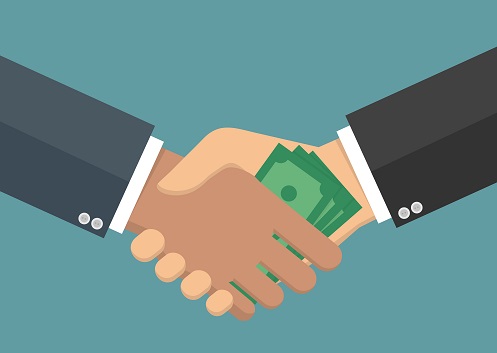A grease payment is a small sum of money given with the sole intention of facilitating a transaction or business deal. The Foreign Corrupt Practice Act (FCPA) considers a transaction as a grease payment only when it is not just issued to make a business deal happen, but to speed up the process. Such a transaction occurs after a US-based company has landed the business deal or has the go-ahead to renew its contract.
FCPA is responsible for leveling the playing field for all the US companies by distinguishing the difference between foreign bribes and grease payments. Its primary goal is to eradicate corruption as a tool used by unscrupulous US-based businesses to gain an edge over competitor companies. As a national body, FCPA plays a role in ensuring that all businesses have an equal opportunity to secure foreign tenders, contacts, and business deals.
According to FCPA, grease payments are legal because they cannot make the foreign institutions change their minds about which company will sign the business deal or contract. When a company is making such payments, they have to make it clear to whom they are sending the money and the payment purpose. The transactions must go through authorized financial institutions, such as banks.
Is Grease Payment Legal?
Grease payment is legal because it is offered to the foreign official to speed up the non-discretionary task. The money is meant to speed the processing time, business deal, contract, or shipment.
Grease payments are common in many developing countries where the public officials accept the payment to help boost their salaries. Grease payment can only be legal when the payment does not make the public official change their mind. If the payment makes them change their decision, then it automatically becomes a bribe, which is illegal.
Grease payment is not legal in all countries, though. Some have banned offering of grease money, be it overseas or in their own country. It is legal because of the tax from the business expenses in other countries. Before giving or receiving grease payment, ensure that you have confirmed if it is legal in your countries because there is a thin line between grease payments and bribes.
What Is the Difference Between a Bribe and Grease Payment?
By now, you must know that there is a thin line between foreign bribes and grease payments. The intention of payment is what draws the line. If a company makes any payment and does change the outcome (foreign official’s decision), it makes it a bribe. If the payment is to expedite a business deal, then that makes it a grease payment.
Remember that offering bribes is illegal because it promotes unhealthy competition in business. For this reason, FCPA comes in to ensure that the business field is fair and just to all potential companies.
How Are Grease Payments Made?
Today, most US companies will make a grease payment transaction through their attorneys. Such attorneys will help ensure that the transaction is legal. They might also help to draft a contract that can help you with the same.
Most US companies deal with trusted law firms and experienced attorneys; this is why they will always let the law firm make the grease payment on their behalf. They will also offer consultation services for those companies that are not sure if the transaction is a bribe or a grease payment.
Why Is a Grease Payment Important?
Grease payments help boost a country’s economy since there is an amount of money deducted as tax. The money also helps public officials earn more money, especially for those who have indecent pay. The money helps in development projects and improve businesses. Those who land business deals and contracts will also help create employment opportunities in their companies.
*****
From time to time, GraniteGrok accepts content from third parties (posts, or additional links after initial publication) from which we may or may not receive compensation.
